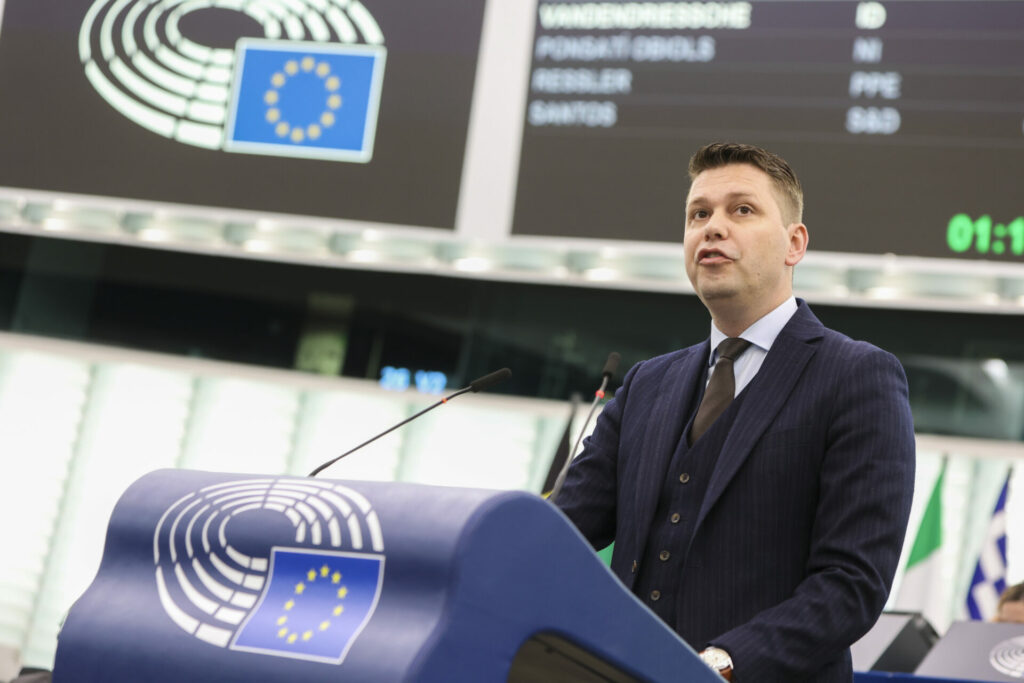An investigation into the language used by a far-right Flemish MEP to describe migration has been launched by the European Parliament.
European Parliament President Roberta Metsola has confirmed that an investigation into the language used by MEP Tom Vandendriessche (Vlaams Belang - Identity and Democracy) will take place after a complaint was lodged by MEP Sophie in 't Veld (Renew).
Vandendriessche's criticism of the European Pact on Migration and Asylum evoked the far-right conspiracy the 'Great Replacement' theory during a parliamentary debate in Strasbourg on Tuesday. In 't Veld subsequently denounced his language as "Nazi-like terminology."
"He is using the term omvolking, which was also used by neo-Nazis when they met with AfD to discuss the deportation of millions of people from Germany," the Dutch MEP explained. "This is not an innocent term."
Baseless and racist
The 'Great Replacement' theory, endorsed by far-right politicians such as Éric Zemmour in France, stipulates that there is a deliberate attempt to replace the native (usually white) population with non-natives – typically of a different ethnicity. The theory is widely discredited. Attempts to legitimise the racist discourse in Belgium have been quashed by protests in the past.
An MEP's adherence to such a theory is an extremely worrying trend within the European Parliament, in 't Veld told The Brussels Times.
She highlighted the increasing prevalence of this rhetoric within the right-wing Identity and Democracy group. "AfD and Vlaams Belang are sister parties, sitting in the same group in Parliament. Using Nazi terminology is not an accident, it is part of their ideology and strategy."
While Vandendriessche accuses the Pact on Migration and Asylum of lacking a return policy, multiple migrant rights organisations have slated the deal's emphasis on rushed asylum procedures, increased detention at European borders, and vague definitions of "safe" third countries in order to accelerate the return rate of rejected asylum seeker applicants.

